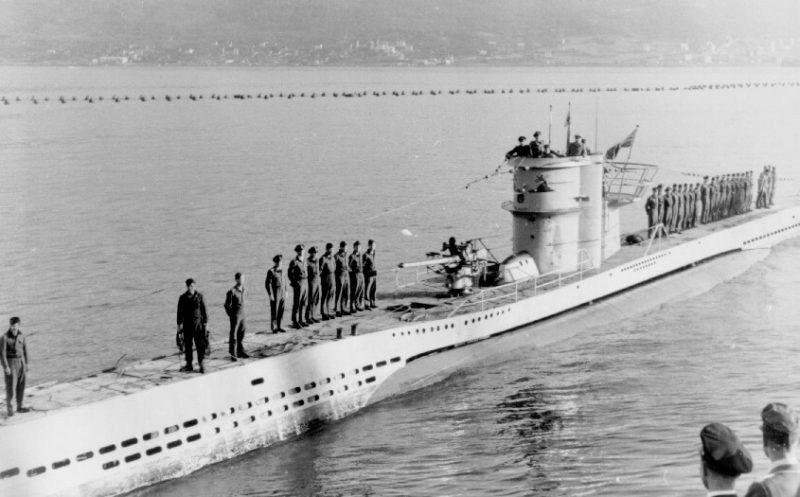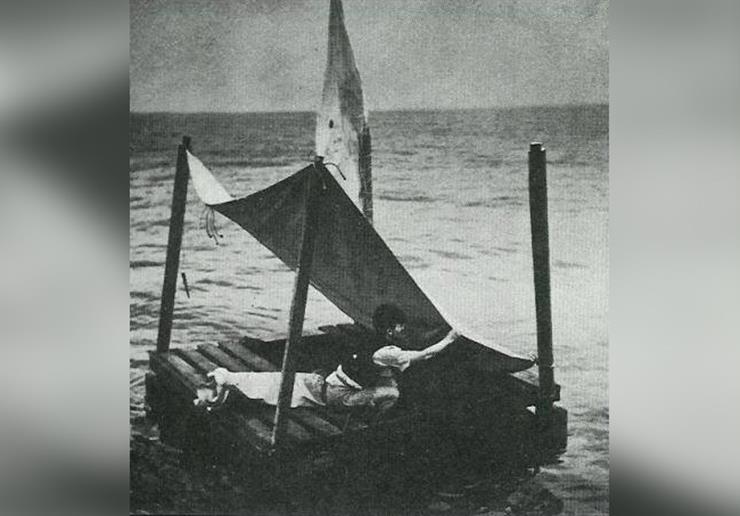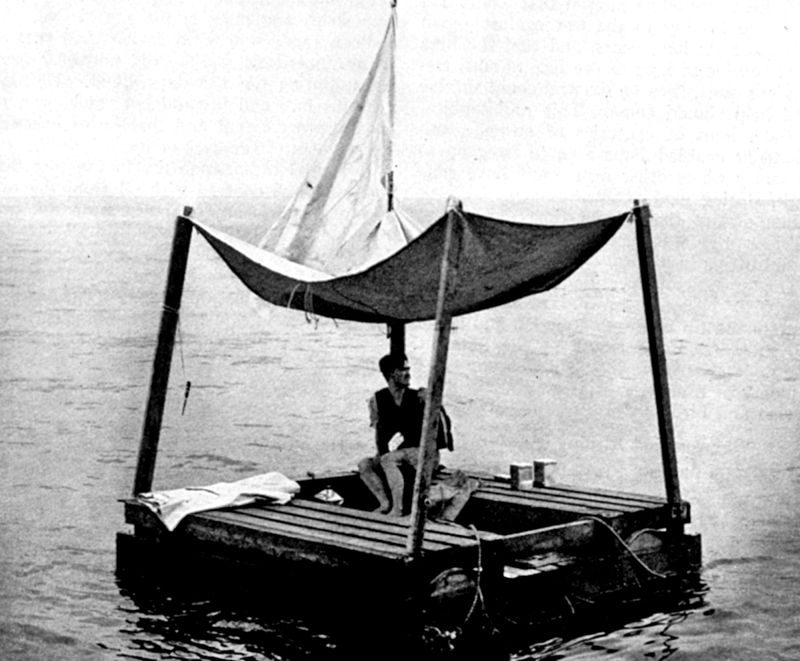His ship was sunk by a U-Boat, he survived on a wooden raft for 133 days
In 1942, at the height of WWII, a 24-year-old Chinese man named Poon Lim was serving as a steward on a British merchant ship.
The ship, Ben Lomond, had just left Cape Town, South Africa when a German U-Boat sunk it. After 133 days alone at sea on a wooden raft with limited supplies, he would eventually emerge as the sole survivor from the ship’s crew.

After being washed overboard, Poon, who had little knowledge of the sea and could not swim well, was able to stay afloat for over an hour with the aid of a lifebelt before spotting a wooden raft and pulling himself onto it.
Scroll down for video
The raft contained enough food, water, and supplies to sustain several people for a short amount of time. The Schenectady Gazette reports that there was chocolate, spam, biscuits, and milk tablets aboard as well as water and survival equipment such as rope, canvas, and a flashlight.

Poon recounts that the food onboard lasted him 55 days, and the water lasted 65 days. According to the Pittsburgh Post-Gazette, from then on he survived by catching rainwater in a canvas and refilling the water containers.
He was able to catch small fish using biscuits and a lightweight hook crafted out of a shiny wire spring from inside the flashlight. He then used these as bait for larger fish, which he snared on a hook fashioned from a nail he pried from the raft.

He split and braided rope to make a strong fishing line that couldn’t be bitten through by sharks. Poon also made nests on the top of his raft to invite birds to sleep there, where he could catch them.
When Poon had been able to catch enough fish, he would dry some in the sun to preserve the meat. However, the sailor was not always so fortunate, and the Los Angeles Times reports that in several instances he had to resort to drinking his own urine as well as sucking the fluids from fish and birds to stay alive. Poon also suffered from sores on his body, was constantly hungry, and was sometimes sick with fever.
Several times while he was on the raft, Poon saw passing ships, submarines, and planes. He thought some of the vessels may have seen him, especially as in one instance he used a smoke device to make himself more visible, but he was not rescued.
Another time, a pilot dropped a dye marker in the ocean to be able to find him later on, but after a storm, Poon did not see the plane again.

In order to pass the time, Poon sang folk songs from his homeland of Hainan Island off the southern coast of China. He was able to keep track of the amount of time that had elapsed by using the phases of the moon. When the moon was full, he knew that it was the middle of another month.
Eventually Poon, wearing nothing but a lifebelt, was found and rescued by fishermen off the coast of Brazil. It is not recorded exactly how far he traveled in the 133 days he spent on the raft.
By the time he was found, he was in good enough health to be able to walk on the pier when the fishing boat docked. According to The Evening Independent, Poon claimed to have only lost 10 pounds during the ordeal, but he did still spend some time in a Brazilian hospital afterwards.
Once Poon had recovered, he was awarded a British Empire Medal by King George VI. According to The Telegraph, his story was also added to Royal Navy training manuals. He eventually came to live in Brooklyn, NY, and a novel called Sole Survivor was published in 1985 narrating his story.
Quite understandably, given all that Poon went through, he was quoted in The Evening Independent from the time as saying, “I do not want to go to sea again.”





